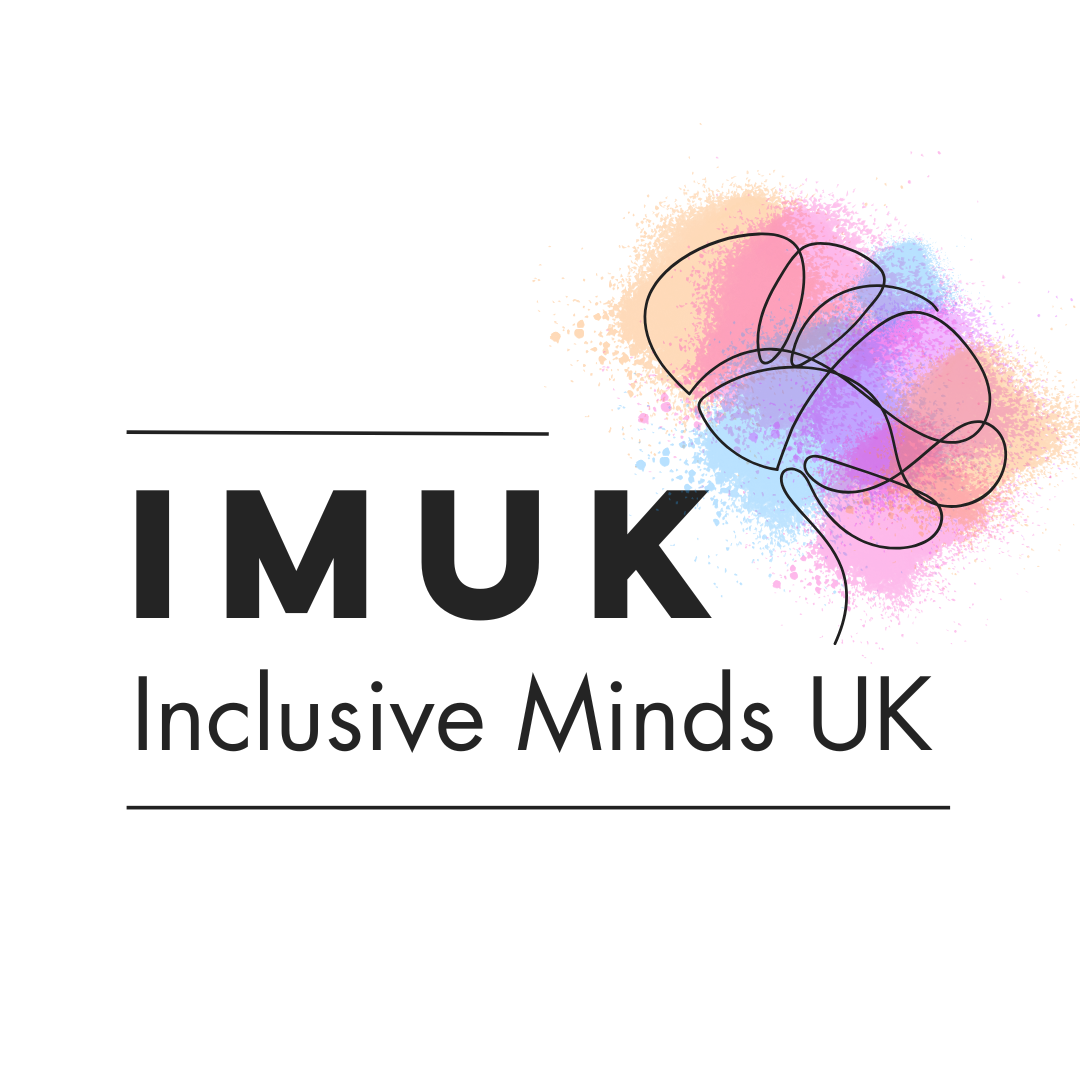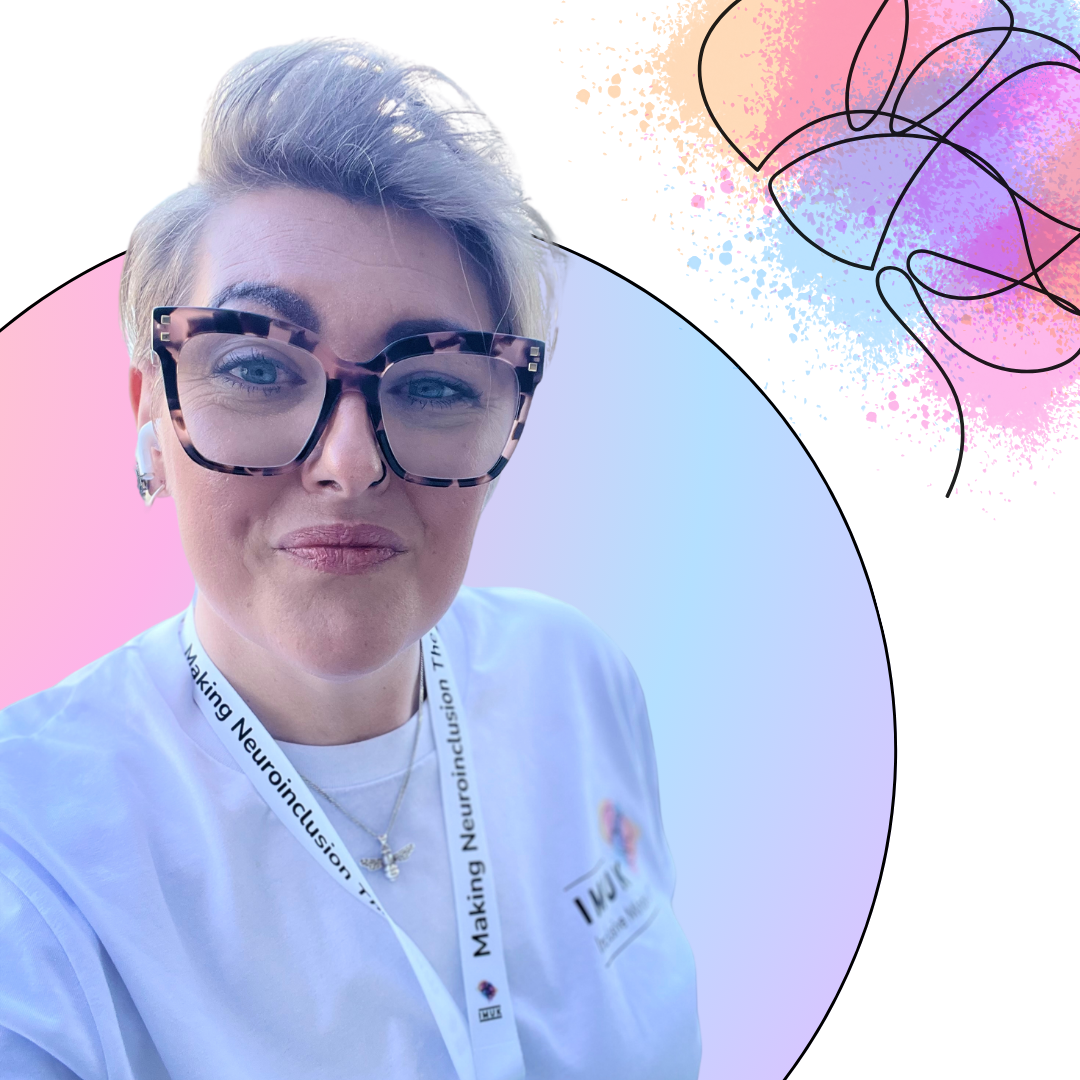Neuroinclusion: What It Actually Is…
(and Why “Being Nice” Isn’t Enough)
Let’s get this straight from the off:
Neurodiversity is not the same thing as Neuroinclusion.
People keep muddling them up, and it’s costing us… in mental health, in business, in wasted potential.
I know this because I’ve lived it.
As a veteran, a mum, a founder, and someone with a brain that doesn’t fit the so-called “norm,” I’ve seen first-hand what happens when neuroinclusion is missing: people burn out, shut up, or bugger off.
And the worst part? Most of the time, the people around them think they’re being nice.
So, let’s break it down properly… with the research, the reality, and the reason IMHub+ even exists.
1. Neurodiversity vs Neuroinclusion
Neurodiversity is just a fact. The sociologist Judy Singer coined the term back in 1998 to describe the natural variation in human brains. Just like biodiversity means a variety of plants and animals, neurodiversity means a variety of brains. No two alike. Always has been, always will be.
But the sad truth is this: neurodiversity doesn’t automatically mean acceptance, support, or safety.
That’s where neuroinclusion comes in.
Neurodiversity = fact. Brains are different.
Neuroinclusion = choice. What we do with that fact.
A 2024 EY study found that while organisations have started adapting hiring, learning, and performance systems, only about 25% of neurodivergent professionals actually feel included at work (EY, 2024). That’s a massive gap between intent and reality.
Take this everyday example: a manager says, “We treat everyone the same here.” Sounds fair, right? Actually, it’s the opposite of neuroinclusion.
Treating everyone the same ignores the fact that people’s brains, and therefore their needs, are all completely different.
Equality isn’t about sameness. It’s about equity.
Real-life: In one workplace I supported, an employee with dyslexia was handed the exact same paperwork process as everyone else, “to be fair.” The result? Missed deadlines, spiralling stress, and eventually sick leave…
Neurodiversity was a fact. Neuroinclusion was missing.
2. Behaviour, Not Posters
Here’s where organisations get it wrong: they slap up a “Be Kind” poster or a neurodiversity awareness week, and think job done.
But neuroinclusion isn’t a laminated slogan. It’s lived, daily behaviour.
That means:
Checking your bias. Daniel Kahneman’s work showed how unconscious bias drives most of our decisions (Thinking, Fast and Slow, 2011). Pretending we’re bias-free is delusional. Neuroinclusion starts with noticing when our assumptions creep in.
Listening without fixing. People with ADHD or autism often report that when they share challenges, the immediate response is: “Have you tried a planner? Have you tried yoga?” The fixing instinct can be invalidating. Listening is more powerful.
Making clarity, not pressure. A 2024 McKinsey Health Institute report showed that lack of clarity and rising job demands are top predictors of burnout across 30 countries (McKinsey, 2024). Clarity is inclusion.
Building psychological safety. This one’s urgent: UK research in 2025 found that employees feel less psychologically safe now than they did five years ago! (People Management, 2025). Neuroinclusion lives or dies here.
Real-life: A friend of mine once told their manager, “I find back-to-back meetings hard, I need a break.” The manager smiled and replied, “We’re all tired, but that’s the culture here.” That’s not culture. That’s exclusion dressed as camaraderie.
3. The Real Cost of Getting It Wrong
Every time someone has to pretend at work (or anywhere), anytime they feel they have to hide their needs, water themselves down, or laugh off microaggressions… their brain pays the bill.
And the bill is getting bigger every year.
Burnout is rising. A 2025 report found that 63% of UK employees now show symptoms of burnout such as exhaustion and disengagement… up from 51% just two years ago (MHFA England, 2024). Mental Health UK reported a generational divide too: 18–24-year-olds are taking more time off for stress than any other age group (MHUK, 2025)… WTF!?
Stress is constant. 86% of UK adults feel stressed at least once a month, and nearly a quarter feel stressed most days of the week (CIPHR, 2024) 🤯.
Silence kills innovation. When psychological safety drops, so does contribution. Most employees, particularly those of us that are neurodifferent, already face barriers to speaking up, and when inclusion isn’t there, silence wins. Accenture’s “Disability Inclusion Advantage” found inclusive companies see 28% higher revenue because people share ideas rather than shut up (Accenture, 2018). Who doesnt want that? I do!!
Trust collapses. Once people see that “wellbeing” is lip service, they stop believing the lot. And trust, once broken, is bloody hard to rebuild.
Real-life: One client told me, “I spend more energy trying to look like I’m coping than actually doing my job.” That’s the tax of pretending. And it’s one too many of us are still paying.
One size fits none. If you’re running spaces, teams, or businesses like everyone’s brain works the same, you’re already excluding people… probably without even realising it.
4. Why IMHub+ Exists
This is exactly why I built IMHub+.
Because I’ve been that person pretending. I’ve been the leader trying to support my team without the tools. I’ve been the small business owner priced out of corporate DEI programmes. And I’m sick of watching people slopey-shoulder neuroinclusion because it feels “too hard” or “too niche.”
IMHub+ is the antidote.
It’s not a tick-box.
It’s not corporate guff.
It’s not a “nice to have.”
It’s a practical, lived-experience-driven space where you actually learn how to:
Check bias
Change behaviour
Create safety
Save brain energy (yours and everyone else’s)
And it’s built for the 99.8% of us… the small businesses, charities, solo acts, and teams that usually get left out.
Neurodiversity is a fact. Neuroinclusion is a choice.
The question is: are you choosing it?
👀
Coming Up: World Mental Health Day 10th October
If you’ve made it this far, you’ll know by now that mental health is a neuroinclusion issue.
That’s why during the week that World Mental Health Day takes place, I’m running a brand-new live experience:
Cognitive Currency: Mental Health is Neuroinclusion
A 45-minute interactive workshop + your own Cognitive Care Package delivered to your door.
You’ll get:
- A live, interactive session (pick your slot: lunchtime or evening)
- A Cognitive Care Package in the post before the workshop
- A Digital Unlock Pack afterwards
- Tools to save, protect, and restore your brain energy
Dates:
Tue 7th Oct, 12:00pm (lunchtime)
Thu 9th Oct, 7:30pm (evening)
Tickets:
IMHub+ members: £47
IMHub Free + Non-members: £97
Team Ticket (up to 5 logins + 5 care packages): £377
Booking info:
⚠️
Spaces are limited and there is a deadline of the 3rd Oct 25 to book (so I can post out your Care Packages in time).
IMHub Free and IMHub+ members book inside IMHub.
Non-members → Book Here
Team tickets → Book Here
📚
References
Ria Jackson with short blond hair, large glasses, and a white IMUK t-shirt smiles at the camera. She wears a lanyard that reads “Making Neuroinclusion the Norm.”
Forget a closet full of clothes, Ria has a hat rack overflowing with experiences! Engineer, educator, mindset coach, NLP practitioner and coach, specialist study skills tutor for ADHD and Autism, trauma-informed practitioner, senior leader, and the list goes on!
She brings a wealth of experience, shaped by her journey as a neurodifferent woman, veteran, and Mum (her whole family is basically a full neurodiversity ad campaign in itself!)
Ria's life and career have been anything but linear!
Now, as the SHE-EO of IMUK, she brings a wealth of experiences and a unique perspective.
Sick of the same old, same old, and wanting to forge a better future for her neurodifferent daughter, Ria's here to disrupt the system!
With a background as diverse as her passions, she's on a quest to make neuroinclusion the new normal.
She believes in authenticity and leaving a positive impact, as evidenced by her closing quote:
"Always be yourself, cos everyone else is already taken!"
(Oscar Wilde, apparently).
Welcome to IMUK!

